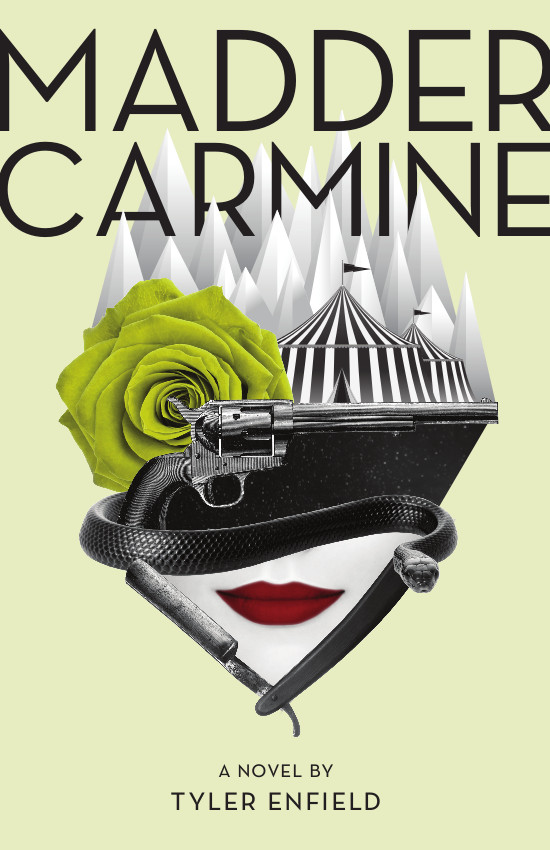| ________________
CM . . .
. Volume XXII Number 5. . . .October 2, 2015
excerpt:
At the beginning of Madder Carmine, Dannon, a young veteran of the Mexican-American war of 1846-48, has returned home to Appalachia. Because he finds little happiness back home, in 1849 Dannon decides to leave in search of Madder Carmine, a girl whom he has only briefly seen but who looms large in his imagination as the love of his life. In this quest, Dannon is accompanied by Virgil, an escaped slave whose owner follows the two men, bent on exacting revenge. Dannon’s journey takes him across mountains and swamps. He encounters people in a nunnery, a brothel and a circus, all in his effort to get to Valhalla and find Madder Carmine once again. Like many allegorical tales, this one centres on the hero’s quest for something which is ephemeral and quite likely unattainable in any real sense. Dannon is hardly a typical hero. He is more like a Don Quixote character who has impossible dreams and no real conception of how to attain them. He is well-read and has a philosophical side. He has unusual capabilities, such as successfully dowsing for water. Dannon is bizarre, yet likeable, an Appalachian idiot savant who survived a war and now just wants to pull his life together. There are overtones of Dante’s Inferno in the novel as Dannon and Virgil pass through various tests and trials en route to their ultimate goal. The names Dannon (Dante?) and Virgil seem to have been chosen to reinforce this. Overtones of Norse mythology also drift through the book, as Virgil’s last name is vol Krie, reminding readers of the Valkyrie figure who chooses warriors to take from the battlefield to Valhalla. And, of course, the town where Madder Carmine apparently resides is, appropriately, Valhalla. Thus Virgil and Dannon are making their way toward a heaven which may or may not correspond to their hopes and dreams once reached. Not only has Dannon apparently been blinded by his love for Madder Carmine, thus making him unable to formulate any co-ordinated or coherent plans, he is truly colour blind. The book’s title highlights the seeming impossibility of Dannon’s quest. According to Merriam-Webster’s online dictionary, madder carmine is a “moderate to purplish red, slightly bluer and less strong than pomegranate purple.” Of course, since Dannon cannot differentiate between reds and greens, perhaps he is also totally confused about the love of his life and blind to the reality of finding her and spending their lives together. Many archetypal themes and great works of world literature come together in this story from 1849 Appalachia which may, in fact, represent Dante’s Hell due to a lack of basic necessities such as food and shelter and life reduced to the survival of the fittest. Dannon enters the book naked, an infant ready to begin his journey through life. As interesting as the novel is for readers with a literary background, I wonder if most young adult readers will appreciate and understand the many classical references. The novel is billed as crossover fiction, hoping to attract both teen and adult readers. While young adults may enjoy the ups and downs of the story and its often comic elements, it is unclear if they will appreciate the language or setting or be able to gain any deeper understanding of the underlying themes and allusions of the book. Recommended with Reservations. Ann Ketcheson is a retired high school teacher-librarian and teacher of English and French who lives in Ottawa, ON.
To comment
on this title or this review, send mail to cm@umanitoba.ca.
Copyright © the Manitoba Library Association. Reproduction for personal
use is permitted only if this copyright notice is maintained. Any
other reproduction is prohibited without permission.
Next Review |
Table of Contents for This Issue
- October 2, 2015. |
